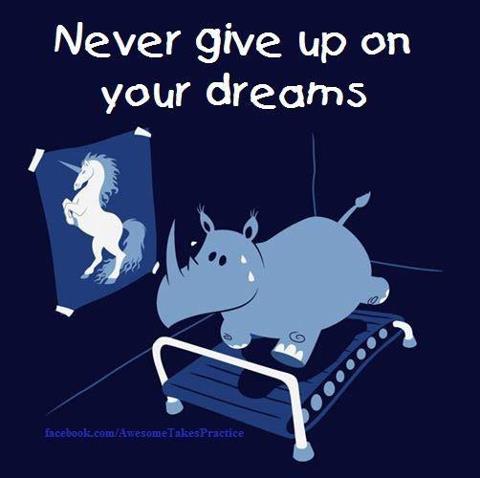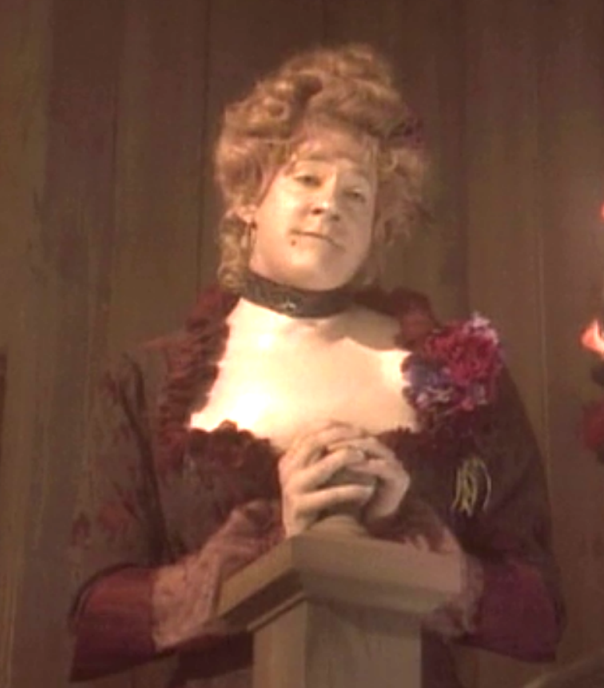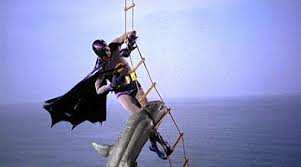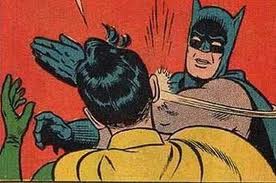Monthly Archives: January 2013
Self-Publication
It’s now just under four months until Generation V will be published. (In case I was too subtle on that: May 7! Pre-order is available at many fine online establishments!) Here’s something that’s kind of funny about being almost-published – you find out just how many people around you would like to publish a book. From my mailman’s niece to the boss of a friend of mine, when the people you know start saying “Hey, my friend is about to get published,” suddenly you become someone people would like to talk to.
This is very different from the response to “Hey, my friend is writing a book,” because then everyone is just coming up with reasons why they really really don’t want to read a draft of it. (For the record – I don’t blame them. Two friends read my drafts. I do not envy them this – they have to tell me what isn’t working in harsh enough terms that I put on adult-sized pants and deal with the issue, yet at the same time validate me for the six months I just spent wrapped up in creating this manuscript. It’s stressful.)
But one of my friends knows someone who has written a manuscript, and who wanted some advice on publication. She’d been talking with someone who self-publishes, and his advice to her was geared toward that line of publication. He even was nice enough to suggest who she could employ to edit the book and design a cover.
Here was her question, which I’m going to post since I have a feeling that it’s a question that a lot of people looking at a freshly completed manuscript end up asking themselves:
Since I’m new to this scene, I wanted to get some more information on the benefits of self-publishing vs. trying to get a literary agent which I know can be very difficult. Any words of wisdom? Do you mind me asking how you got started?
I’ve written about my path to publication before, but I never really addressed my own decision not to explore self-publication. Plus I spent about two hours writing my reply email, so I’ve decided to put this up. I know that there are a lot of strong feelings both for and against self-publication, and that this topic has a lot of nuances to it, but here are my thoughts on the issue, and the advice that I would offer to people considering it for themselves.
I’m clipping the first part of my letter, which was about stuff more specific to her, but I’m posting the rest as I sent it to her.

I think this goes with the general gist of my feelings toward publishing. The odds may be long, but I think it’s worth trying for. Run, hippo, run!
Firstly, I’ll explain my own position about self-publishing — I know that it has gained much more credibility in the last few years, and that it is no longer limited to the standard “vanity press” — there are also a lot of examples lately of people who didn’t have luck getting something published through traditional means, published themselves, and found success.
That being said, when I was working toward getting published (and it did take me a few years), self-publishing was never something I even thought about trying. Was getting an agent hard? Yes, it was. I cold-queried over sixty agents before I found mine — some of them never responded, many sent me form rejections, several read parts of my manuscript and thought about taking me on, and a few even came very close to taking me.
And getting an agent is no easy pass to publication either, since then your agent tries to find your book a publisher, which is just as difficult. My book is going to be published in May — it is not the book that I got my agent with. The book my agent originally represented (the book I spent three years writing, trying to get an agent with, rewriting with feedback I’d gotten, and then finally got her with) never sold, despite my agent’s best efforts. So I sat down and wrote a completely new book. And it also took my agent about seven months to find this book a home, and it was rejected by enough publishing houses that I’d actually just sat down to start writing a third book when my agent gave me the call that we’d gotten a nibble of interest.
But during that time period (which stretched about four years from the first time I sent a query to an agent to when I signed a contract to sell my book) I never thought that self-publishing was a better option. And I’m even more confident about that decision now. I’ll walk through that process again:
I wrote a book that I loved and that I was extremely proud of. I’d already gone through two major edits, and it looked good. If I was self-publishing, I could’ve taken that book (which I was happy about) and jumped immediately to the parts like hiring someone to edit, hiring someone to do a cover, and trying to do self-promotion.
It wouldn’t have been the best thing I could’ve written. The agents who turned down my manuscript gave me a lot of very valuable criticism. I probably sent it out to forty agents before I decided that the manuscript needed to be overhauled. So I stopped submitting and took six months and reworked the book again. It was hard, but the book was a lot better when I was done. I sent it out to all the agents who had responded to my original query. None took the book on, so I compiled a new list of agents and started sending out. That was when I found my agent, Colleen Mohyde.
That’s the thing — one query or a thousand queries: all you need is one person to say yes. If you have a good, solidly written book, then someone will say yes. Also, the thing about an agent is that she doesn’t get paid until you do — it’s in her best interests to make sure that she gets you the best possible deal on the best possible terms. Short of one-shot celebrity memoirs, every agent is working to build an author’s career. Colleen worked with me for two years before she got a paycheck out of it.
So Colleen then took my book and sent it out — starting with the top publishing companies, then working her way slowly down the list to small independent presses. This took one very long year, with a lot of rejections, a few nibbles of interest, but mostly rejections. It became really clear that the book wasn’t selling — so during my summer break from teaching, I sat down and wrote another book. I gave it to Colleen, and she began the same process that she had with the first, complete with a number of rejections — except this time it sold, and it sold to [Roc]. Definitely a big deal. And, again — it didn’t matter how many people ultimately said no, as long as one person said yes.
So I sold a manuscript that was 74,000 words (and here is where Colleen more than earned her 15% — on the contract negotiation), and a book that I loved, my agent loved, and my editor loved.
What is getting published is 85,000 words. My editor and I went back and forth on three through edits — one largely structural, and two more precise line-edits. I cut some things, adjusted some things, and ended up fleshing out and adding a lot more. I can say without a doubt — everywhere my editor touched the manuscript, it got better. She questioned things and challenged several others, and it pushed me to improve what I’d thought was good and make it better. I wasn’t employing my editor — we were working together on a project that both of us believed strongly in, and that we were both trying to make as good as it could be. Because she also had a bit of a position of authority over me, I never had the out of saying, “Hey, I just want to leave it like that” — if I didn’t agree with an edit, I had to work elsewhere to correct the issue she was noting. She was able to do her job, and that was pushing me to write as well as I could — and beyond where I would’ve left things on my own.
Once my editor was satisfied with the result of our labor, it was passed over to a separate copy-editor. This person had no emotional stake in the manuscript like my editor or I did, and a month later I was presented with his notes. These were mainly focused on grammar and continuity (things that I’d already worked on with the editor, but now these were even more precise), and I worked on those and returned the manuscript. It then went to a typesetter, who put together an uncorrected proof. These pages were sent to me and to a completely new proofreader to make sure that any last grammar issues or typos were caught — and this is a fact: even after it had been through this many edits and hands, I found 10. I don’t know yet if my proofreader found any others.
After this round the book will be adjusted, rebound, and advance reader’s copies will be sent out to try to solicit some more good reviews. When I first finished the initial edits, my editor sent the manuscript to a bunch of other (bestselling) authors to try to get blurbs for the front cover — I got two from bestselling authors in the field. If I’d just sent an e-book to them, I have no doubts that they never would’ve read it.
Because I’m a new author, not much money (comparatively) will be spent on publicizing my book — that’s just a fact of the publishing world today. So I’ve been setting up a website, blogging, trying to bring my book to the attention of people who could help publicize it — all the stuff that any writer will do as self-promotion. But in addition to what I am doing, my agent is doing everything she can to promote it, and so is my editor, and there’s a general publicity department over at Penguin that includes information about my book in their press releases. Whenever I find a website or blog that devotes itself to reviewing books, I fill out a form on their site to request that they review my book when it comes out — and the truth is that many of them specify on the form that they aren’t interested in self-published books.
The cover of my book is amazing — my editor asked me to send her a list of covers I’d seen that I liked so that she could get a sense of what my tastes were, but she also let me know at the start that they would be putting together a cover to sell the book, not to please me. A team worked on it, with my editor very involved, and when they showed me the result I was blown away. Was it what I’d pictured? Nope. It’s not what I would’ve designed either. But I’m not a graphic designer — I’m a writer. Not having to worry about the cover, or pick someone to do it, meant that I had more time to write. Plus, the cover that I was presented was something that a whole group had worked on.
This is running crazy long, so let me ultimately sum this up — if you’ve written a book that you are proud of, and that you worked hard on, I think you owe it to yourself to try and get it published through the biggest platform available to you to showcase this work. Good books are self-published — I’m not denying that. But so are a whole lot of bad books that are poorly edited and have very cheap cover design. And even if your book is amazing, and you employ a great editor who will be honest with you about every change that needs to be made and will go back and forth with you through as many edits as necessary, and even if you get a great cover artist who designs an amazing and professional cover (and that can absolutely happen!), here’s the thing:
1) You are putting a very real financial investment into this book beyond what was even required to write it — the editor, the cover artist, whether you then also employ a copy-editor and then a final proof-reader, plus the publication itself. Will it be faster than if you went traditional publishing? Yes. You will also rest assured that you will see your name on the cover of a book, which is a promise no one can make to you if you pursue traditional publication. But I never wrote a single check or handed out a dollar to anyone in that long process I described to you — it was long and hard, but when money came, it came to me, not from me. My agent and my editor are invested in the book — that’s where their payout will come from — not from whether I’ll write them another check.
2) There will be an asterisk next to your book if you self-publish. This isn’t a scarlet letter, but it means that the strength of your writing will have to overcome assumptions. Even as self-publishing is getting more and more acceptable, and the barrier of brick and mortar bookstores becomes less important in sales, this is a fact that will very seriously remain, and for this reason:
No matter how much you put into this work, and how good you *know* that it is, this fact will remain: a five-year-old can self-publish. All it takes is someone standing next to them with a working checkbook, and their book will sit right beside yours. Publishers deal with the slush pile — these are unagented manuscripts that are sent in by those dreaming of publication. Famous books have been pulled from the slush pile. Less famous are the books by five-year-olds that get dropped into the recycling bin. But self-publishing is the new slush pile — and forcing your book to the top of that so that people can read it and be inspired by it is frankly a full-time job in self-promotion. You don’t have the stamp of approval that comes with traditional publishing — that this passed through many gates, and many rounds of approval, and what is here is professional and readable. (notice that I don’t say “good” — no one can truly guarantee that. but the rest does matter)
3) The option to self-publish will still be there next year, and the year after it. I know what it feels like to so viscerally want to see your work in print — but will it hurt you to say to yourself, “If I’m not in a publishing contract in ___ years, then I’ll look into self-publishing.” Unless your book is about how the Mayan calendar was originally miscalculated and the world is actually going to end on New Year’s Day 2014, then it probably won’t. And don’t you owe it to the work you’ve put into the book to try?
Anyway, I’m sorry that this took so long and became so much of a soap-box sermon, but I hope that it helps you make the decision that works for you, and please don’t hesitate to email me any questions!
— That’s the end of the letter. So I’m wondering, what do the rest of you think? Am I giving good advice or bad? If you’ve self-published, can you add your viewpoint to offset mine?
And if you read that and have any questions, just drop them in the comments field and I’ll be happy to answer them!
I leave you with this:
Copyedits and Page Proofs
So a while back, I received notes from my copyeditor about the Generation V manuscript (publication date May 7 – preorder at Amazon, Barnes & Noble, or wherever you like to buy your literature!). Having never had the pleasure of working with a copyeditor before, I kept in mind the wise words emailed to me on the topic by my industry insider buddy, Karen:
As for the copyeditor… Copyeditors exist for one reason: to make you realize that you don’t know the English language like you probably should.
More seriously, they clean up the manuscript so all subjects and their verbs agree and so all pronouns have a clearly identified antecedent. They prune cliches, unmix metaphors, and go on “which” hunts (ie, use “that” with restrictive clauses, “which” with non-restrictive clauses — curiously enough, the Brits habitually ignore this “rule”). Moreover, they edit your manuscript to adhere to “house style”. (Do they use “cancellation” or “cancelation”? Do they use serial commas? etc.)
That actually was really useful advice. Now, I’ve never considered myself too much of a stickler about grammar (grammar sticklers reading this blog will definitely agree) despite the fact that I teach basic grammar to college students multiple times per year. But if you ever have the experience of having your manuscript copyedited, here’s my advice: Don’t get too worked up. This is a person doing their job. One that in the end will make the book better.
A few things were very interesting to learn about – firstly, my copyeditor clearly researched a few things a bit further than I did. Now, I did a bit of research when it came to arming my hero (ie: I asked questions of friends who grew up red states), but apparently I had a few gaps, now much better filled in as a result.
I’ll be honest – when you type some search terms into Google, you end up at some really weird websites, and after a while you start worrying about ending up on government watch lists.
There were also a lot of smaller areas that I’d never even considered – for example, apparently “Nereids” is a proper noun. Who knew? My copyeditor, that’s who. Also, apparently Styrofoam is actually a brand name, whereas I tend to use it as a generic term for any white squishy material used in take-out containers. Areas like that were duly corrected.
Areas that also came up – my habit of using “further” and “farther” completely interchangeably. I also managed to create an incredible tangle by mixing tenses in some contexts, which was very irritating to try and unsnarl, and had a major impact on the work I’m currently doing on Book Two. Namely – I do not want to have make those corrections again. (note: I probably will have to make those corrections again)
But, very excitingly, the manuscript moved through the copyedit phase, and now I have something extremely awesome on my desk. What, you ask?
My page proofs just arrived!

My page proofs are the emotional equivalent of this photo, in that they will never stop being awesome.
Generation V has existed for a very long time as a series of Microsoft Word documents, either on my computer or emailed between me and my editor. For the first time, I can actually see what it’s going to look like as a book – it’s a very heady moment. It’s a big milestone on the way to getting published – each step makes it feel that much more real.
It sounds a little silly to say – after all, I’ve had a signed contract with Roc for months now, editors have put in a lot of work on this book, and I even have a cover now, but it reminds me of what it was like to buy a house. There were a lot of very exciting moments in the process, but until that last morning in an attorney’s office when my husband and I signed about 50,000 documents, something could still have happened to stop the process, and so buying the house didn’t feel entirely “real.” A zombie-pocolypse could strike New York city, decimating the publishing industry and leaving us in a world where contracts are no longer honored because we are too busy fighting to survive. (True fact: When I read on my editor’s Twitter feed that she was home sick with a cold, my first thought was, “Oh my God, if she dies of the flu, what happens to the book?” Then I immediately felt shame thinking that.)
Publication on Generation V now just over four months away, and I’m continuing to chip away at the manuscript for Book Two. That’s pretty much taking up my life right now – I’m hoping to finish the first draft of the manuscript by the end of January so that I can even out my schedule a bit.
Lacking a great way to finish this entry, I’ll do it with this:



